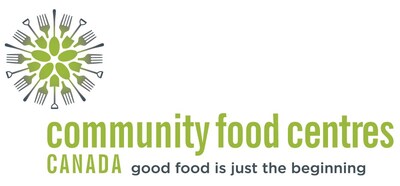TORONTO, June 27, 2024 /CNW/ – Nearly nine million people in Canada face the daily challenge of food insecurity, a crisis demanding urgent and innovative solutions. In response, Community Food Centres Canada (CFCC) has launched “Food Security Now,” an online tool that equips communities with localized data on poverty and food insecurity.
Food Security Now is a comprehensive digital resource that provides detailed, riding-specific data on poverty and food insecurity across Canada. Available in both English and French, the tool offers essential statistics on poverty rates segmented by various factors, including Indigenous status, disability status, racialized groups, immigration status, family type, and more.
This new resource empowers community members, policymakers, and CFCC’s network of over 350 partners to advocate effectively for targeted solutions and work collectively to reduce food insecurity and poverty across Canada.
“Any level of food insecurity is too high in a country as rich as Canada,” says Nick Saul, CEO of CFCC. “We’ve seen an increase in food insecurity across the board. Every day, nearly 1 in 4 people in Canada worry about food because they don’t have enough money. This alarming increase really underscores the urgent need for immediate solutions and inspired the Food Security Now tool. At CFCC, we believe that knowledge is power, and when communities have access to localized data, they can better advocate for change.”
The Food Security Now tool serves as a catalyst for community action. It provides accessible, localized data that enables users to share relevant information with their local MPs to better inform political decisions and address the unique challenges within their communities.
Key Data Highlights include:
- Poverty Rates: Across Canada, 3.8 million people live in poverty, with 8.7 million experiencing food insecurity.
- Regional Disparities: PEI and Nova Scotia have the highest rates of food insecurity at 29 per cent, while Quebec, with the lowest rate, still has 16 per cent of its population affected.
- Disproportionate Impact: Food insecurity disproportionately affects Indigenous peoples, racialized communities, people with disabilities, immigrants, renters, and single individuals aged 18 to 64.
- Systemic Inequities: Racialized people are nearly twice as likely to live in poverty compared to non-racialized individuals, with the Eastern provinces seeing racialized people three times more likely to live in poverty.
CFCC invites people to join the movement for food security by visiting foodsecuritynow.ca or actionsecuritealimentaire.ca. Users can search their addresses to find detailed information about poverty and food insecurity in their ridings. They can also email their MPs directly with this crucial localized data to drive collective action and urge their federal representatives to implement progressive income policies.
CFCC further calls on the federal government to commit to reducing food insecurity by 50 per cent by 2030, relative to 2021 levels. This requires significant investments in robust income and social policies that address poverty at its root, as well as strengthen the social safety net, including Employment Insurance and affordable housing.
CFCC is equipping community members across Canada with the information and tools necessary to advocate for change, while also doing its part to push for systemic solutions at the national level.
For More Information
To learn more about Food Security Now and how you can contribute to the fight against food insecurity, visit foodsecuritynow.ca.
About Community Food Centres Canada
At the heart of Community Food Centres Canada’s work is the belief that food is a basic right. We bring people together around good food to help communities thrive. With more than 350 partners across the country, we build inclusive, culturally responsive spaces, share knowledge, create health-focused programs, and advocate for equitable policy change.
SOURCE Community Food Centres Canada

Featured image: Megapixl © Bhofack2





